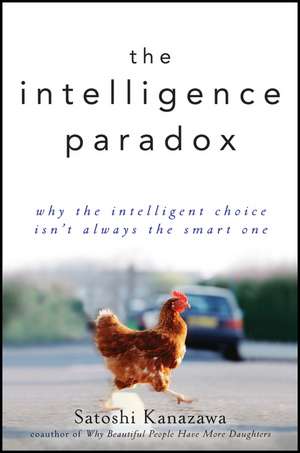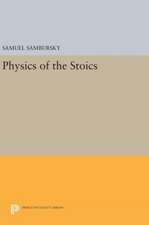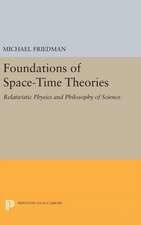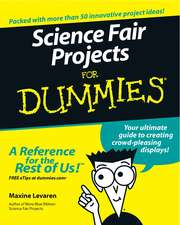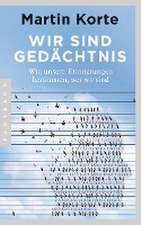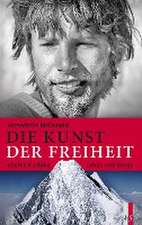The Intelligence Paradox: Why the Intelligent Choice Isn′t Always the Smart One
Autor Satoshi Kanazawaen Limba Engleză Hardback – 9 apr 2012
- Asks why more intelligent individuals are not better (and are, in fact, often worse) than less intelligent individuals in solving some of the most important problems in life such as finding a mate, raising children, and making friends
- Discusses why liberals are more intelligent than conservatives, why atheists are more intelligent than the religious, why more intelligent men value monogamy, why night owls are more intelligent than morning larks, and why homosexuals are more intelligent than heterosexuals
- Explores how the purpose for which general intelligence evolved solving evolutionarily novel problems allows us to explain why intelligent people have the particular values and preferences they have
Preț: 149.36 lei
Puncte Express: 224
Preț estimativ în valută:
26.41€ • 31.34$ • 22.96£
26.41€ • 31.34$ • 22.96£
Carte disponibilă
Livrare economică 11-25 martie
Specificații
ISBN-13: 9780470586952
ISBN-10: 0470586958
Pagini: 272
Dimensiuni: 163 x 240 x 26 mm
Greutate: 0.5 kg
Editura: Wiley
Colecția John Wiley &Sons
Locul publicării:Hoboken, United States
ISBN-10: 0470586958
Pagini: 272
Dimensiuni: 163 x 240 x 26 mm
Greutate: 0.5 kg
Editura: Wiley
Colecția John Wiley &Sons
Locul publicării:Hoboken, United States
Public țintă
This book aims for the same audience as for Why Beautiful People Have More Daughters, and it aims to do for intelligence research what Beautiful People did for evolutionary psychology.Descriere
Advance praise for The Intelligence Paradox
"The Intelligence Paradox is a chocolate sundae for the brain, filled with insights about intelligence and everyday behavior that have changed my thinking about intelligence. A brilliant achievement and a joy to read." Charles Murray, author of the New York Times bestseller Coming Apart
"This is a splendidly written book about a fascinating new theory of intelligence. By carefully anchoring his approach in evidence, Kanazawa integrates information about the evolution of intelligence in intriguing and tantalizing ways. He also generates some startling and provocative predictions. Be forewarned, this book will change the way you think about intelligence." Gordon Gallup, evolutionary psychologist, University at Albany, SUNY
"This is a beautifully written book that will sell to laymen as well as to academics. Kanazawa′s thesis is that intelligence, what IQ tests measure, is a specific ability to cope with general problems for which our evolution has not prepared us. Intelligence then leads to great benefit when tethered to the real world, such as quantum theory and computers. Untethered, it can lead to convoluted nonsense such as fads in literary criticism. And while intelligence may often be considered an unalloyed good, Kanazawa shows it has costs to biological fitness. For example, intelligent people have fewer offspring, although successful reproduction is the definition of evolutionary success. Intelligent people are more prone to indulge in (evolutionary) novelties such as drugs. Viewed from the perspective of evolution, intelligent people are ′the ultimate losers in life.′" Henry Harpending, coauthor of The 10,000 Year Explosion: How Civilization Accelerated Human Evolution
"General intelligence is both a grand achievement of psychology research and a crucial human dimension. That people differ so markedly from each other on such an important trait has seemed something of an evolutionary paradox. Wouldn′t evolution make us all smart? Satoshi Kanazawa proposes an intriguing explanation about how human intelligence evolved and why differences remain among us. It is a creative but data–driven argument that I found surprising but sensible. I think he may be right. And it′s delivered in a breezily elegant style that is a joy to read." J. Michael Bailey, author of The Man Who Would Be Queen
"The Intelligence Paradox is a chocolate sundae for the brain, filled with insights about intelligence and everyday behavior that have changed my thinking about intelligence. A brilliant achievement and a joy to read." Charles Murray, author of the New York Times bestseller Coming Apart
"This is a splendidly written book about a fascinating new theory of intelligence. By carefully anchoring his approach in evidence, Kanazawa integrates information about the evolution of intelligence in intriguing and tantalizing ways. He also generates some startling and provocative predictions. Be forewarned, this book will change the way you think about intelligence." Gordon Gallup, evolutionary psychologist, University at Albany, SUNY
"This is a beautifully written book that will sell to laymen as well as to academics. Kanazawa′s thesis is that intelligence, what IQ tests measure, is a specific ability to cope with general problems for which our evolution has not prepared us. Intelligence then leads to great benefit when tethered to the real world, such as quantum theory and computers. Untethered, it can lead to convoluted nonsense such as fads in literary criticism. And while intelligence may often be considered an unalloyed good, Kanazawa shows it has costs to biological fitness. For example, intelligent people have fewer offspring, although successful reproduction is the definition of evolutionary success. Intelligent people are more prone to indulge in (evolutionary) novelties such as drugs. Viewed from the perspective of evolution, intelligent people are ′the ultimate losers in life.′" Henry Harpending, coauthor of The 10,000 Year Explosion: How Civilization Accelerated Human Evolution
"General intelligence is both a grand achievement of psychology research and a crucial human dimension. That people differ so markedly from each other on such an important trait has seemed something of an evolutionary paradox. Wouldn′t evolution make us all smart? Satoshi Kanazawa proposes an intriguing explanation about how human intelligence evolved and why differences remain among us. It is a creative but data–driven argument that I found surprising but sensible. I think he may be right. And it′s delivered in a breezily elegant style that is a joy to read." J. Michael Bailey, author of The Man Who Would Be Queen
Textul de pe ultima copertă
Advance praise for The Intelligence Paradox
"The Intelligence Paradox is a chocolate sundae for the brain, filled with insights about intelligence and everyday behavior that have changed my thinking about intelligence. A brilliant achievement and a joy to read." Charles Murray, author of the New York Times bestseller Coming Apart
"This is a splendidly written book about a fascinating new theory of intelligence. By carefully anchoring his approach in evidence, Kanazawa integrates information about the evolution of intelligence in intriguing and tantalizing ways. He also generates some startling and provocative predictions. Be forewarned, this book will change the way you think about intelligence." Gordon Gallup, evolutionary psychologist, University at Albany, SUNY
"This is a beautifully written book that will sell to laymen as well as to academics. Kanazawa′s thesis is that intelligence, what IQ tests measure, is a specific ability to cope with general problems for which our evolution has not prepared us. Intelligence then leads to great benefit when tethered to the real world, such as quantum theory and computers. Untethered, it can lead to convoluted nonsense such as fads in literary criticism. And while intelligence may often be considered an unalloyed good, Kanazawa shows it has costs to biological fitness. For example, intelligent people have fewer offspring, although successful reproduction is the definition of evolutionary success. Intelligent people are more prone to indulge in (evolutionary) novelties such as drugs. Viewed from the perspective of evolution, intelligent people are ′the ultimate losers in life.′" Henry Harpending, coauthor of The 10,000 Year Explosion: How Civilization Accelerated Human Evolution
"General intelligence is both a grand achievement of psychology research and a crucial human dimension. That people differ so markedly from each other on such an important trait has seemed something of an evolutionary paradox. Wouldn′t evolution make us all smart? Satoshi Kanazawa proposes an intriguing explanation about how human intelligence evolved and why differences remain among us. It is a creative but data–driven argument that I found surprising but sensible. I think he may be right. And it′s delivered in a breezily elegant style that is a joy to read." J. Michael Bailey, author of The Man Who Would Be Queen
"The Intelligence Paradox is a chocolate sundae for the brain, filled with insights about intelligence and everyday behavior that have changed my thinking about intelligence. A brilliant achievement and a joy to read." Charles Murray, author of the New York Times bestseller Coming Apart
"This is a splendidly written book about a fascinating new theory of intelligence. By carefully anchoring his approach in evidence, Kanazawa integrates information about the evolution of intelligence in intriguing and tantalizing ways. He also generates some startling and provocative predictions. Be forewarned, this book will change the way you think about intelligence." Gordon Gallup, evolutionary psychologist, University at Albany, SUNY
"This is a beautifully written book that will sell to laymen as well as to academics. Kanazawa′s thesis is that intelligence, what IQ tests measure, is a specific ability to cope with general problems for which our evolution has not prepared us. Intelligence then leads to great benefit when tethered to the real world, such as quantum theory and computers. Untethered, it can lead to convoluted nonsense such as fads in literary criticism. And while intelligence may often be considered an unalloyed good, Kanazawa shows it has costs to biological fitness. For example, intelligent people have fewer offspring, although successful reproduction is the definition of evolutionary success. Intelligent people are more prone to indulge in (evolutionary) novelties such as drugs. Viewed from the perspective of evolution, intelligent people are ′the ultimate losers in life.′" Henry Harpending, coauthor of The 10,000 Year Explosion: How Civilization Accelerated Human Evolution
"General intelligence is both a grand achievement of psychology research and a crucial human dimension. That people differ so markedly from each other on such an important trait has seemed something of an evolutionary paradox. Wouldn′t evolution make us all smart? Satoshi Kanazawa proposes an intriguing explanation about how human intelligence evolved and why differences remain among us. It is a creative but data–driven argument that I found surprising but sensible. I think he may be right. And it′s delivered in a breezily elegant style that is a joy to read." J. Michael Bailey, author of The Man Who Would Be Queen
Cuprins
Acknowledgments xi Introduction 1
What Do People Want? 3
A Brief Word on the Data 8
1 What Is Evolutionary Psychology? 13
Four Core Principles of Evolutionary Psychology 15
Two Logical Fallacies That We Must Avoid 19
2 The Nature and Limitations of the Human Brain 23
The Savanna Principle 23
3 What Is Intelligence? 37
Common Misconceptions about Intelligence 38
How Did General Intelligence Evolve? 49
Cognitive Classes 54
4 When Intelligence Matters (and When It Doesn t) 55
The Savanna–IQ Interaction Hypothesis 55
From the Hypothesis to the Paradox: The Intelligence Paradox on Individual
Preferences and Values 71
5 Why Liberals Are More Intelligent than Conservatives 73
What Is Liberalism? 73
Are Liberals More Intelligent than Conservatives? 76
If Liberals Are More Intelligent than Conservatives, Why Are Liberals So Stupid? 78
IQ and the Values of Nations 84
6 Why Atheists Are More Intelligent than the Religious 87
Where Does Religion Come From? 87
Is It Natural to Believe in God? 92
Societal Implications 95
7 Why More Intelligent Men (but Not More Intelligent Women) Value Sexual Exclusivity 97
Humans Are Naturally Polygynous, Not Monogamous 97
Are More Intelligent Men More Likely to Be Faithful? 101
Intelligence and Marriage Institutions 110
8 Why Night Owls Are More Intelligent than Morning Larks 113
Choice within Genetic Predisposition 114
Night Life Is Evolutionarily Novel 115
So Are Asians Really More Nocturnal than Others? 122
9 Why Homosexuals Are More Intelligent than Heterosexuals 127
What Does It Mean to Be Homosexual? 128
Evolutionary Novelty of Homosexual Identity and Behavior 130
Intelligence and Homosexuality 133
10 Why More Intelligent People Like Classical Music 141
Evolutionary Origins of Music 144
Intelligence and Tastes for Music 148
Evolutionary Novelty or Cognitive Complexity? 152
11 Why Intelligent People Drink and Smoke More 157
Brief Histories of Alcohol, Tobacco, and Drugs 158
Intelligence and Substance Use 160
Intelligence and Criminality 173
12 Why Intelligent People Are the Ultimate Losers in Life 177
Reproduction Is the Ultimate Goal of All Living Organisms 177
Intelligence and the Value for Children 178
Intelligence and the Number of Children 181
Heritability of Fertility: An Evolutionary Puzzle 186
Possible Societal Consequences 187
13 Other Possible Consequences of Intelligence 191
Coffee 192
Vegetarianism 192
Crime and Punishment 198
Representative Democracy 199
Conclusion: Intelligent People Are Not What You Think 205
Notes 209
References 221
Index 243
What Do People Want? 3
A Brief Word on the Data 8
1 What Is Evolutionary Psychology? 13
Four Core Principles of Evolutionary Psychology 15
Two Logical Fallacies That We Must Avoid 19
2 The Nature and Limitations of the Human Brain 23
The Savanna Principle 23
3 What Is Intelligence? 37
Common Misconceptions about Intelligence 38
How Did General Intelligence Evolve? 49
Cognitive Classes 54
4 When Intelligence Matters (and When It Doesn t) 55
The Savanna–IQ Interaction Hypothesis 55
From the Hypothesis to the Paradox: The Intelligence Paradox on Individual
Preferences and Values 71
5 Why Liberals Are More Intelligent than Conservatives 73
What Is Liberalism? 73
Are Liberals More Intelligent than Conservatives? 76
If Liberals Are More Intelligent than Conservatives, Why Are Liberals So Stupid? 78
IQ and the Values of Nations 84
6 Why Atheists Are More Intelligent than the Religious 87
Where Does Religion Come From? 87
Is It Natural to Believe in God? 92
Societal Implications 95
7 Why More Intelligent Men (but Not More Intelligent Women) Value Sexual Exclusivity 97
Humans Are Naturally Polygynous, Not Monogamous 97
Are More Intelligent Men More Likely to Be Faithful? 101
Intelligence and Marriage Institutions 110
8 Why Night Owls Are More Intelligent than Morning Larks 113
Choice within Genetic Predisposition 114
Night Life Is Evolutionarily Novel 115
So Are Asians Really More Nocturnal than Others? 122
9 Why Homosexuals Are More Intelligent than Heterosexuals 127
What Does It Mean to Be Homosexual? 128
Evolutionary Novelty of Homosexual Identity and Behavior 130
Intelligence and Homosexuality 133
10 Why More Intelligent People Like Classical Music 141
Evolutionary Origins of Music 144
Intelligence and Tastes for Music 148
Evolutionary Novelty or Cognitive Complexity? 152
11 Why Intelligent People Drink and Smoke More 157
Brief Histories of Alcohol, Tobacco, and Drugs 158
Intelligence and Substance Use 160
Intelligence and Criminality 173
12 Why Intelligent People Are the Ultimate Losers in Life 177
Reproduction Is the Ultimate Goal of All Living Organisms 177
Intelligence and the Value for Children 178
Intelligence and the Number of Children 181
Heritability of Fertility: An Evolutionary Puzzle 186
Possible Societal Consequences 187
13 Other Possible Consequences of Intelligence 191
Coffee 192
Vegetarianism 192
Crime and Punishment 198
Representative Democracy 199
Conclusion: Intelligent People Are Not What You Think 205
Notes 209
References 221
Index 243
Notă biografică
Satoshi Kanazawa was one of the inaugural contributors to the Psychology Today blog and is Associate Editor of the Journal of Social, Evolutionary, and Cultural Psychology. He is a Reader in Management at the London School of Economics and Political Science and Honorary Research Fellow in the Department of Psychology at Birkbeck College, University of London.
